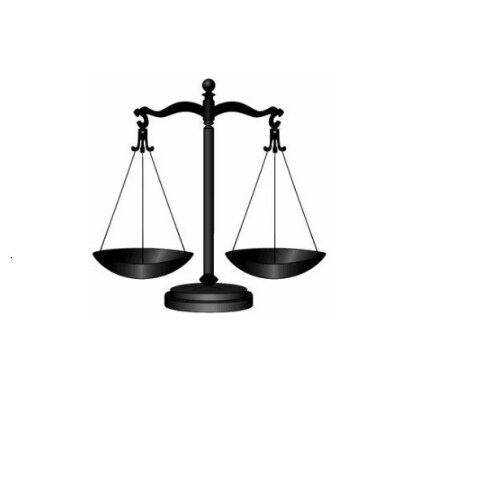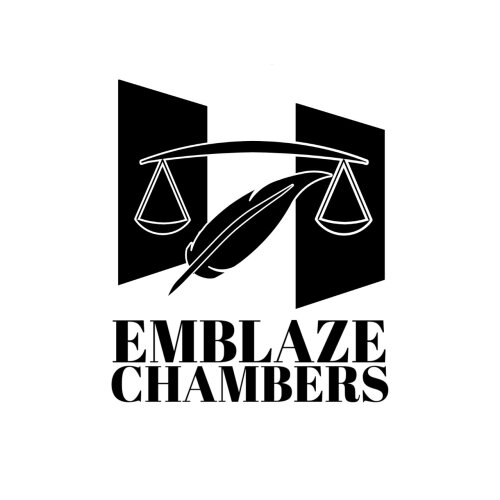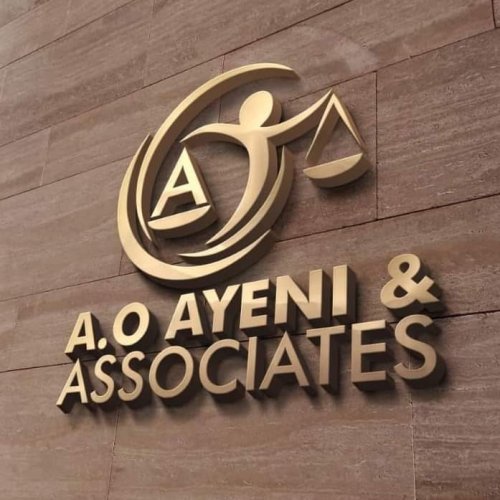Best Military Law Lawyers in Abuja
Share your needs with us, get contacted by law firms.
Free. Takes 2 min.
List of the best lawyers in Abuja, Nigeria
About Military Law in Abuja, Nigeria
Military Law in Abuja, Nigeria, represents a specialized legal framework governing the conduct and discipline of members of the Nigerian Armed Forces, including the Army, Navy, and Air Force. It deals with the administration of military justice and the procedures guiding courts-martial, military tribunals, and other disciplinary measures. The cornerstone of Military Law in Nigeria is the Armed Forces Act, which outlines the responsibilities and legal obligations of military personnel. The framework ensures the maintenance of order, discipline, and justice within the military ranks, balancing military requirements with the protection of individual rights.
Why You May Need a Lawyer
Individuals may require legal assistance in Military Law for a variety of reasons. Some common situations include:
- Facing a court-martial or military tribunal for alleged misconduct or violations.
- Requesting legal advice on rights and obligations under military regulations.
- Seeking redress for wrongful dismissal or unfair treatment within the military.
- Performance evaluations or disciplinary actions that may affect career progression.
- Legal disputes over military contracts or procurement processes.
- Advisory services for military personnel transitioning to civilian life.
Local Laws Overview
Military Law in Abuja is primarily governed by the Armed Forces Act, which is the legislative backbone guiding military justice in Nigeria. Key aspects of these local laws include:
- Military Discipline: Covers offenses and penalties specific to military personnel, including insubordination, desertion, and conduct unbecoming.
- Court-Martial Procedures: Defines the process for military trials, including the composition, jurisdiction, and powers of military courts.
- Rights of the Accused: Provides protections for military personnel facing disciplinary measures, ensuring fair trial rights akin to civilian justice.
- Appeals: Outlines the process for appealing decisions made by military courts, ensuring a systematic review of judgments and sentences.
Frequently Asked Questions
1. What is the role of a military lawyer?
A military lawyer provides legal counsel and representation to military personnel regarding military-specific legal matters and civil-military relations.
2. Can a civilian lawyer represent me in a military court?
Yes, civilian lawyers can represent military personnel in military courts, provided they have the necessary clearance and understanding of military law.
3. What constitutes a military offense?
Military offenses may include insubordination, desertion, mutiny, failure to obey orders, and other actions contrary to military regulations and conduct.
4. How are court-martial proceedings conducted?
Court-martial proceedings are formal military trials conducted under the supervision of military legal officers, similar to civilian court trials but tailored to military contexts.
5. Are military law proceedings public?
Court-martial proceedings are generally open to the public unless classified for security reasons or to protect sensitive information.
6. How can I appeal a military court decision?
Appeals are made to the Armed Forces (Disciplinary) Appeals Committee, which reviews the decisions and ensures they are consistent with legal standards.
7. What legal rights do Nigerian military personnel have?
Military personnel enjoy rights similar to civilians, including fair trial rights, representation, and protection against arbitrary detention under military jurisdiction.
8. Can a soldier be tried in civilian courts?
Yes, military personnel can be tried in civilian courts for non-military offenses, such as civil crimes committed off-duty.
9. How are military lawyers appointed?
Military lawyers in Nigeria are commissioned officers in the legal department of the Armed Forces, appointed based on their legal expertise and experience.
10. What is the Armed Forces Act?
The Armed Forces Act is comprehensive legislation that governs the administration, discipline, and legal proceedings related to the Nigerian Armed Forces.
Additional Resources
For further assistance in Military Law, consider reaching out to the following resources:
- The Nigerian Armed Forces Legal Services Division: Offers advisory services for military personnel.
- The Nigerian Bar Association (Military Law Section): Provides resources and references for finding specialized legal representation.
- Non-Governmental Organizations: NGOs like the Military Justice Project offer support and guidance for military personnel facing legal issues.
Next Steps
If you need legal assistance in Military Law, follow these steps:
- Identify the nature of your legal issue and determine whether it's related to military or civilian jurisdiction.
- Consult with a legal professional specializing in Military Law, ensuring they have experience with the relevant military regulations.
- Collect all necessary documentation and evidence related to your case for your lawyer to review.
- Remain informed about your rights and obligations throughout the legal process.
- Follow any legal advice provided to ensure compliance with military and civil laws.
Lawzana helps you find the best lawyers and law firms in Abuja through a curated and pre-screened list of qualified legal professionals. Our platform offers rankings and detailed profiles of attorneys and law firms, allowing you to compare based on practice areas, including Military Law, experience, and client feedback.
Each profile includes a description of the firm's areas of practice, client reviews, team members and partners, year of establishment, spoken languages, office locations, contact information, social media presence, and any published articles or resources. Most firms on our platform speak English and are experienced in both local and international legal matters.
Get a quote from top-rated law firms in Abuja, Nigeria — quickly, securely, and without unnecessary hassle.
Disclaimer:
The information provided on this page is for general informational purposes only and does not constitute legal advice. While we strive to ensure the accuracy and relevance of the content, legal information may change over time, and interpretations of the law can vary. You should always consult with a qualified legal professional for advice specific to your situation.
We disclaim all liability for actions taken or not taken based on the content of this page. If you believe any information is incorrect or outdated, please contact us, and we will review and update it where appropriate.
















